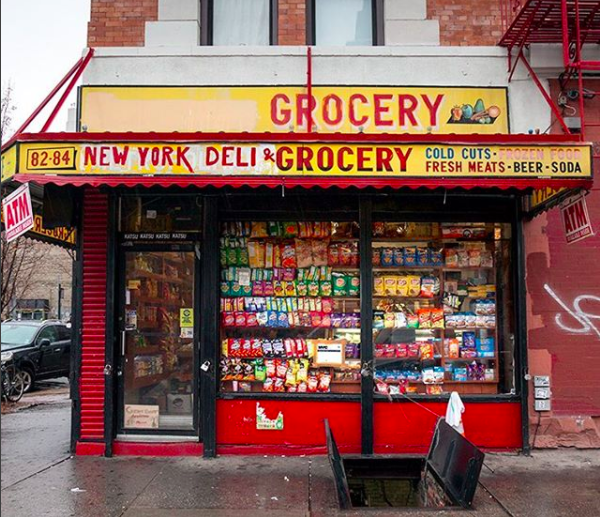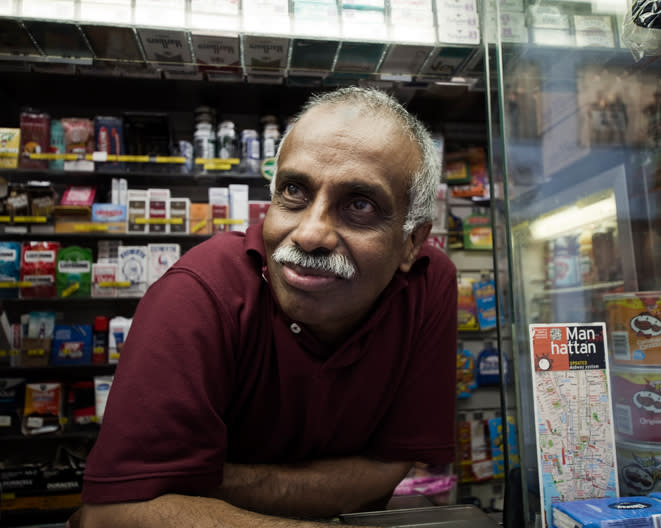How that Bodega startup will harm POC-owned businesses in my community

I’m originally from Shreveport, Louisiana, but I relocated to New York City in 2014. Once I got there, I hit up the only Chick-fil-A in the city (at the time), watched the Empire State Building change colors, checked out the Brooklyn Museum, and breezed through Times Square. I explored those familiar chains, flashy locations, and historic sites during my early days in the city, but there was another kind of place that made me truly feel welcomed — my local bodega. Bodegas are an omnipresent force in NYC, and they soon became a staple of my east coast experience.
For those who are unfamiliar, bodegas are corner stores that are conveniently placed on nearly every block in New York City. While not as expansive as a 99-cent store, bodegas are filled with hot food, snacks, drinks, household necessities, hygiene products, and other small items that make living in the city easier. Some are open 24 hours, while most close for a brief time in the early morning.
But bodegas are meaningful for more than just the goods they provide – they are Black- and Brown-owned businesses, cultural hubs that serve as meeting spots for people of color.
Bodegas are like hair salons and religious centers in the sense that they are all relaxed gathering spots for Black and Brown people to convene, converse, and be their true selves without code switching or feeling nervous.
A couple days ago, I saw Twitter lighting up with talk of a startup called Bodega.
Bodega is a company that will (as explained by FastCompany), “[set] up five-foot-wide pantry boxes filled with non-perishable items…An app will allow you to unlock the box and cameras will…register what you’ve picked up, automatically charging your credit card. The entire process happens without a person actually manning the ‘store.’”
It didn’t take too long for people to realize how damaging this concept will be to already marginalized workers of color. It could make bodegas obsolete.
if you want to make bodegas obsolete you are saying you want to make communities obsolete
— #rachelsyme (@rachsyme) September 13, 2017
my bodega owners are yemeni immigrants and the bodega not only affords them a life in new york but also allows them to send money back home
— Jessica Roy (@JessicaKRoy) September 13, 2017
Bodega was founded by two ex-Google employees, Paul McDonald and Ashwath Rajan. The website site states that they’re “combining the convenience of online shopping with the instant gratification of real world retail.”
Okay. Yeah. Sure.
As I learned more about the men behind the startup, I was shocked that one of the founders is a person of color himself. It reminded me that skin tone does not always dictate whether someone engages in gentrifying practices, or whether they prioritize capital over people of color’s well-being. That ideology is capable of dwelling in anyone’s mind.
My outrage also helped me remember that this struggle to maintain our culture is ongoing.
How many times have safe POC spaces been trampled upon under the guise that they are “being fixed” by Whiteness? Exploration. Colonialism in the Americas. Gentrification. Need I continue?
it’s blatant. they want the convenience of the bodega without having to interact with the people whose neighborhood they invaded.
— king crissle (@crissles) September 13, 2017
Weird that they're calling this heinous vending machine "Bodega" and not "Gentrification Box" https://t.co/xPCozclRRD
— Tristan Cooper (@TristanACooper) September 13, 2017
It’s important to understand that Black and Brown people have created systems and environments that work for us – usually because we either were not allowed in White areas or because those spaces so badly discriminated against us that building our own establishments was the better option.
A post shared by James and Karla (@jamesandkarla) on Sep 14, 2017 at 3:45pm PDT
These zones have become our havens. Watching people who possess next level privilege try to take them away feels like a backhanded slap in the face from someone wearing rings on all five fingers. I won’t even delve further into how the startup’s NAME and LOGO were lifted and repurposed from bodega culture — it’s too painful. Insult to injury for sure.
anyway, if a store on the corner isn’t convenient enough for you, it ain’t convenience keeping you out of the bodega. it’s the people.
— El Flaco (@bomani_jones) September 13, 2017
My bodega man watched me spend my last $5 bill on menstrual pads, and you know what he did? Gave me a free hero sandwich.
My close friend’s bodega guy helped her find a new apartment when she suddenly had to move earlier this year. A bodega man came up with a way for me to (legally) make some extra cash when I was strapped. These are emotional experiences that could never exist in the AI world. You can’t get a hot sandwich and a joke from a machine. You can’t link up with your homies and blast music while standing around a machine. Human interaction and love from those in your circle are necessary, even if only every once in a while. Threatening those concepts is not only dangerous, but sad.
My bodega guy lives in my building; I'd like to see your dumb machine bring you an egg sammie at 11pm & talk about its world travels https://t.co/siSA2hFLKl
— Danielle Henderson (@knottyyarn) September 13, 2017
While it’s true that an explanatory blog post was made by McDonald, the damage has already been done in my eyes. These men and their investors have shown other people in Silicon Valley that it is okay to eradicate POC’s daily rituals and replace them with knock-offs that could never compare. While their intentions may not have been to “put corner stores out of business” because “[they] have been fixtures of their neighborhoods for generations,” an action’s impact doesn’t always sync up with its intentions.
I perceived the company to be a blatant attack on my lifestyle, and on the lifestyles of the communities I love. That’s something I will never stand for.


